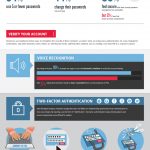Companies must refocus privacy efforts says Gartner report

According to a survey by research company Gartner only 43 percent of organizations have a comprehensive privacy program in place whilst seven percent admit to only doing the bare minimum to address privacy laws. The results are based on 221 organizations surveyed in April and May 2013 in the US, Canada, UK and Germany.
"More than a third of organizations still 'consider privacy aspects in an ad hoc fashion' and it is surprising that so many companies are saying that they are not conducting privacy impact assessments before major projects. Sixty-two percent do not scan websites and applications, or conduct an organization-wide privacy audit every year. Organizations must put these activities on their to-do list for 2014," says Carsten Casper, research vice president at Gartner.
PowerArchiver 2013 improves performance, adds cloud support and encryption tools

It’s taken a little while, but ConeXware has finally released PowerArchiver 2013 (aka version 14). We’re not really surprised that it’s taken some time to get through beta, though: this is no cosmetic upgrade, rather it’s crammed with significant changes and major new features.
Extensive cloud support means you can upload, add files or download from services like Amazon S3, Microsoft Azure, Box.et, Dropbox, Google Drive and SkyDrive.
LinkedIn throws its hat into the ring -- wants to be more transparent

It seems that every online company is in a sharing mood at the moment. Facebook has already come clean about the data requests it has received from the US government, Microsoft wants to tell us more and Google is really keen on the idea. The latest company to express concern about the restrictions on reporting about government data requests is LinkedIn.
In a "Letter to the LinkedIn community", Vice President, General Counsel, and Secretary of LinkedIn, Erika Rottenberg, not only announces the publication of the social network's Transparency Report for H1 2013, but also expresses "great disappointment and frustration" at the limitations on what can be reported. Rottenberg reveals that she has written to the FBI to ask that LinkedIn be permitted to release additional data about requests that have been made.
Google loses appeal in Street View Wi-Fi collection case -- right or wrong?

Google faces claims for damages from people who had personal data collected from their wireless networks as the company gathered information for its Street View service. Google had previously claimed that emails, usernames and passwords had been collected unintentionally, but the appeal ruling means that the company is not exempt from liability under the federal Wiretap Act.
Back in 2010, Google admitted that data such as network SSIDs and MAC addresses were collected along with photos. In this blog post the company denied that it pulled "payload data" (essentially the data that is being sent over the networks) but it was later revealed that "Google did indeed collect (and store) this information from unencrypted Wi-Fi networks". A full report is available to read online. Google was required to delete this data, and indeed did so.
Google files amended transparency petition in push to publish FISA order details

Google's unofficial motto has long been 'do no evil' and the company is keen to be seen to stick to it. Jumping into bed with Nestle may have raised a few eyebrows and rattled a few cages, but in a blog post, Richard Salgado, Director of Law Enforcement & Information Security, and Pablo Chavez, Director of Public Policy and Government Affairs show the search giant is eager to stay on the right side of customers.
Google has filed petition in the US Foreign Intelligence Surveillance Court asking that they be allowed to publish details of FISA orders. The petition is very similar to others that we have seen in recent months in the wake of the NSA surveillance revelations, and is really just a follow-up to the We Need To Know letter from back in July in which a number of leading companies wrote to, amongst others, President Obama to "urge greater transparency around national security-related requests".
The trouble with relying on passwords for security

One of the key features of the new Apple iPhone 5S is the fingerprint sensor built into the home button. This allows users to unlock the device, and even authorize iTunes purchases, simply by pressing a digit against the laser cut sapphire crystal. So now when someone steals your phone, they’ll have to also steal one of your fingers at the same time.
It’s another attempt to replace the password and PIN, and we’ve seen a few of those over the years. Windows 8 even lets you sign in using a picture as an alternative. But the truth is, as exciting as fingerprint scanners and other forms of futuristic security measures seem, the password is here to stay for a while yet. And that’s a problem.
DeepSound lets you hide confidential documents inside audio CD tracks

When you need to send confidential documents to someone else steganography can be an effective technique. Use SteganPEG to embed your files inside JPEGs, say, then just email them as normal, and casual observers will see only normal pictures. They’ll never realize your hidden data is inside.
And at first glance, DeepSound seems to carry out much the same function, but with audio files. Point the program at a WAV or FLAC file, hide a few personal documents inside, and you’re done: the audio files will still play just as before, and only someone who knows the secret will be able to extract your hidden content.
Microsoft and Google (don’t really) want to tell you more about government data requests

Sounds nice, doesn't it? Two big names have listened to the concerns of the people that matter -- their customers -- in the wake of the NSA debacle, and want to share more information with the public about precisely what information the government is asking them to hand over. If only it were that simple.
In a blog post on TechNet, Microsoft General Counsel Brad Smith reveals that both Microsoft and Google filed lawsuits back in June to try to force the government to permit them to publish details of data requested under Foreign Intelligence Surveillance Act (FISA) orders. Smith says they [the two companies] believe they have a "clear right under the US Constitution to share more information with the public".
Facebook 'proposes' changes to the way it handles your data

Just a couple of days ago Facebook was in the headlines after being ordered to pay out $20m for putting user data to work in advertising campaigns. Now the site is proposing a set of changes to the documents that govern the way user data is handled as well as determining who has access to it.
At least some of the suggested changes come as a direct result of the court ruling including re-writing the Statement of Rights and Responsibilities. The new document includes a clearer explanation of the fact that in using Facebook users are granting permission for their name, profile picture and content to be used "in connection with ads or commercial content". It is good to see, however, that "when you limit your audience, we’ll respect that choice".
Facebook reveals details of government data requests from around the world

We’ve known for a while that governments around the world have been gathering data about Internet users, monitoring online communication via instant messaging, email and much more. Numerous websites and social networks have received requests from government bodies for information relating to their customers and users. Now, Facebook reveals for the first time just who has been asking for data.
The Global Government Request Report covers the first six months of 2013, and is introduced with the words "Transparency and trust are core values at Facebook". Although the report is not especially detailed -- it is likely that it was not legally possible to be -- it does show which countries have asked for data, the number of requests each country made, the number of user accounts inquired about, and (perhaps most interestingly) the percentage of requests that Facebook was legally obliged to comply with.
Internet Explorer is the latest browser to get the Adblock Plus treatment

It might come as a surprise, particularly if you are a Chrome, Opera or Firefox user, but Adblock Plus has not been available for Internet Explorer until now. Microsoft's web browser is the latest to gain the option to block advertisements. An experimental version of the plugin was released for IE a couple of months ago, but today sees the release of the official, final version.
The add-on has been a long time coming to Internet Explorer, and fans of the browser are likely to welcome it with open arms. If you've used the extension in other browsers, you'll have a good idea of what to expect -- although the name is something of a give-away.
Did Edward Snowden cause the shutdown of secure email service Lavabit?

Privacy has been a red hot topic for the past couple of months -- ever since the whole PRISM story hit the news, or shall I say slammed into the news. Nobody likely denies the government the right to attempt to keep citizens safe. In fact, we expect this from it. However the revelations made many uncomfortable thanks to the extremes that were being taken, and resulted in the conversation over whether Edward Snowden was a hero or enemy of the state.
Since the news broke, speculation about the form of communication used between Snowden and writer Glenn Greenwald of The Guardian has been running around the internet, but today those rumors came to an end when Greenwald tweeted this: "Amazing: Lavabit -- the email service used by Snowden -- shuts down rather than comply with US orders".
Twitter tracks your tweets so advertisers can monitor sale performance

Twitter teams up with Datalogix (DLX) in a new program that enables brands to track the impact that their tweets have on sales. Referred to as "offline sales impact", the program can be used to see just what effect promoted and regular, "organic" tweets have on the number of units shifted from shop shelves.
The precise process involved is not revealed, but the program sees Datalogix send Twitter a list of hashed email addresses which is then compared to a list of email addresses associated with Twitter accounts.
Could Twitter's verified accounts be the answer to stopping tweet threats?

We've talked about Twitter and the subject of policing the Internet quite a bit recently. It's not just us. Countless websites, newspapers, blogs and TV news channels have debated just what can be done to stop the problem of online abuse.
Part of the problem is that Twitter is -- as is the case with much of the Internet -- largely anonymous; or at least that's what most users think. They must think that, or they would not behave so stupidly and recklessly online. The reality is that, unless someone has taken measures to cover their tracks through proxy servers or other masking techniques, it's not really all that difficult to link an online message to, if not an individual person, at least an individual machine -- with the help of ISPs and other parties.
Keep control of the files you share with SmartRM

You’ve come up with an important business proposal, and want to share your ideas with someone else. You could just mail them a PDF document with the details, but if the deal falls through, there’s no way to control what happens to the file later.
Protect that document with the free SmartRM, though, and it’s a very different story. You can decide who opens it, when, how many times, whether they can print it, and more. And if there are problems, then you can restrict or block access in just a few seconds -- even after you’ve sent them the file.
Recent Headlines
Most Commented Stories
© 1998-2025 BetaNews, Inc. All Rights Reserved. About Us - Privacy Policy - Cookie Policy - Sitemap.